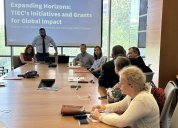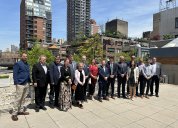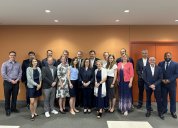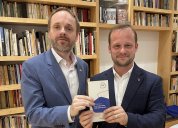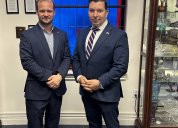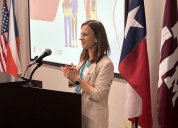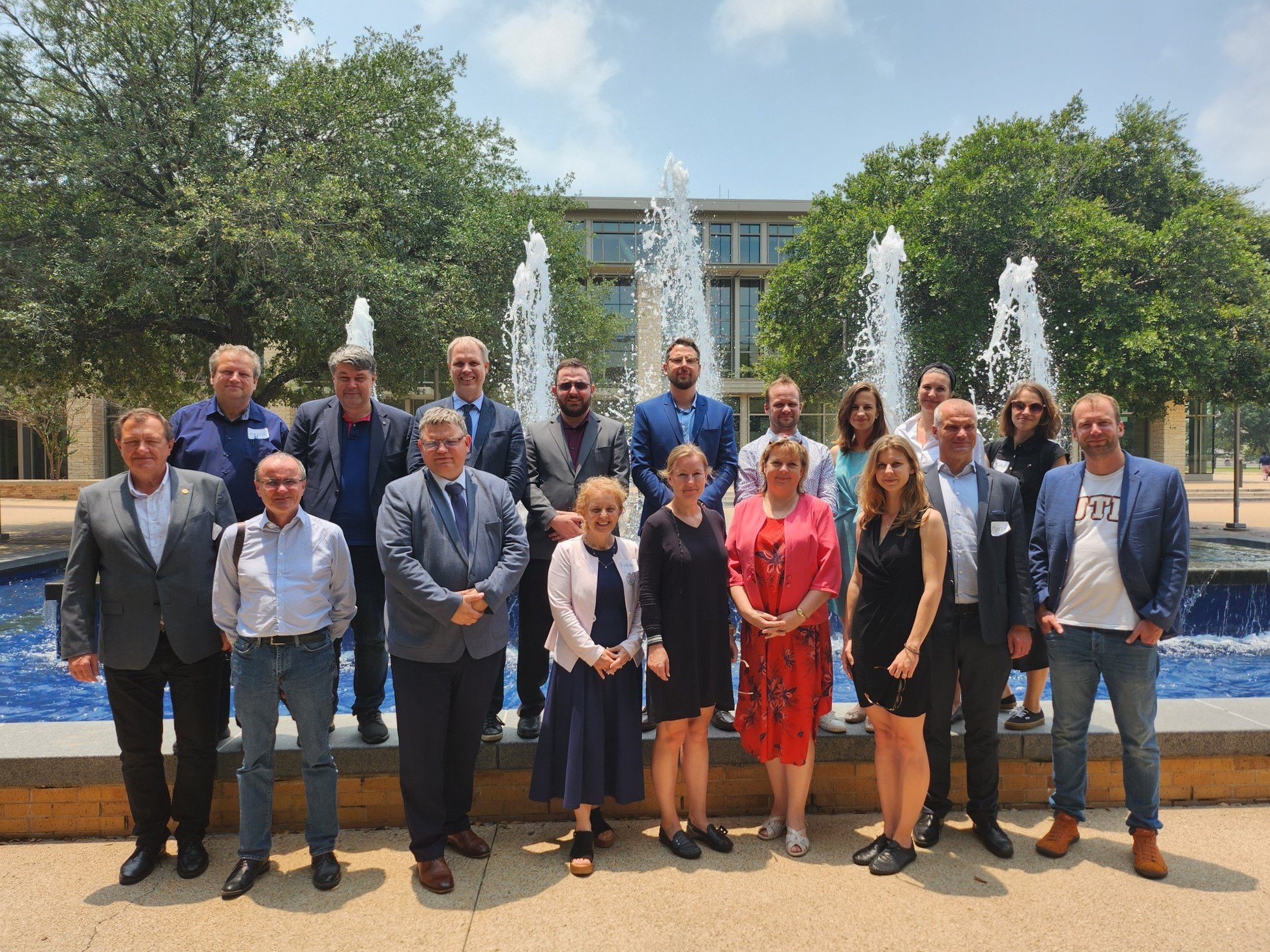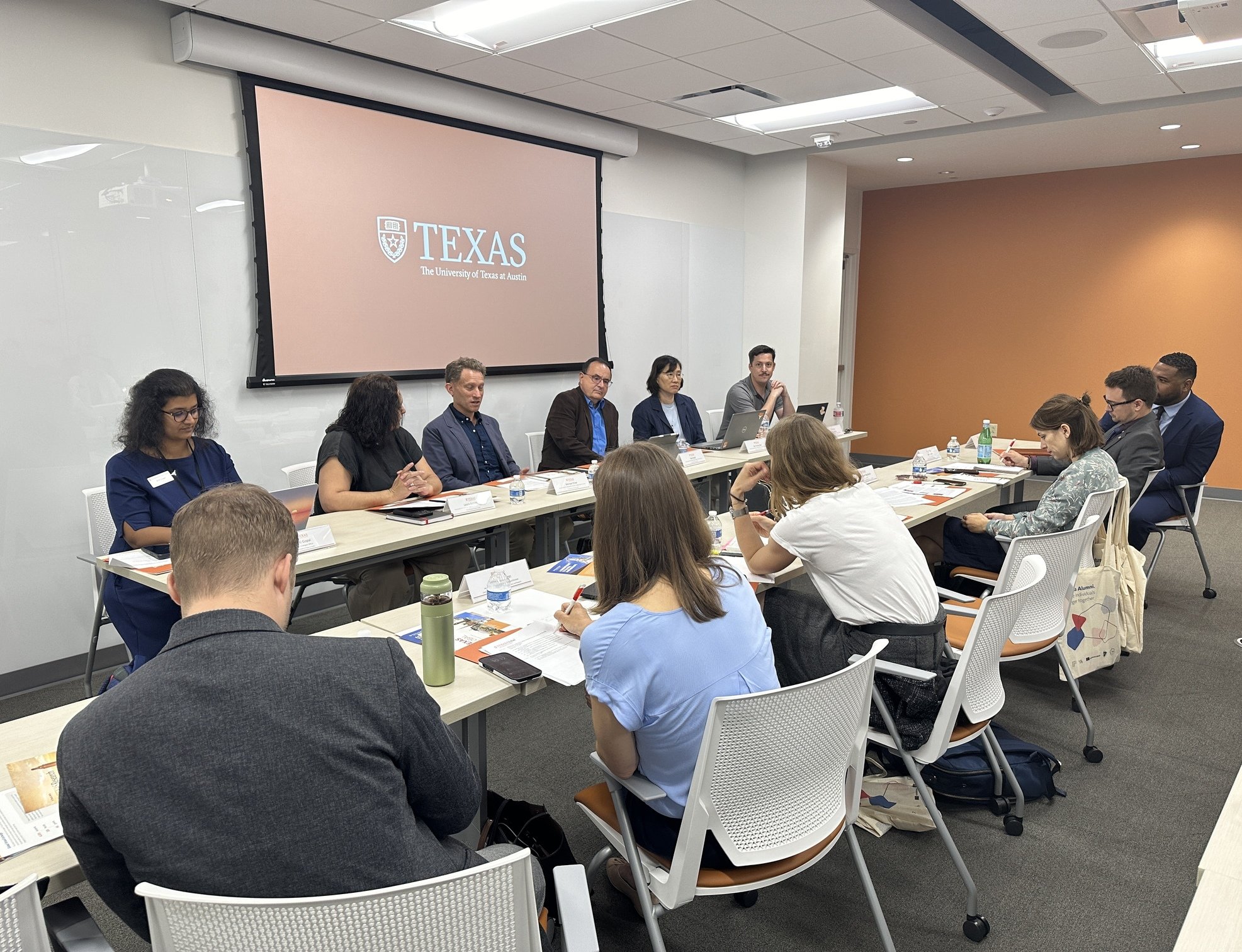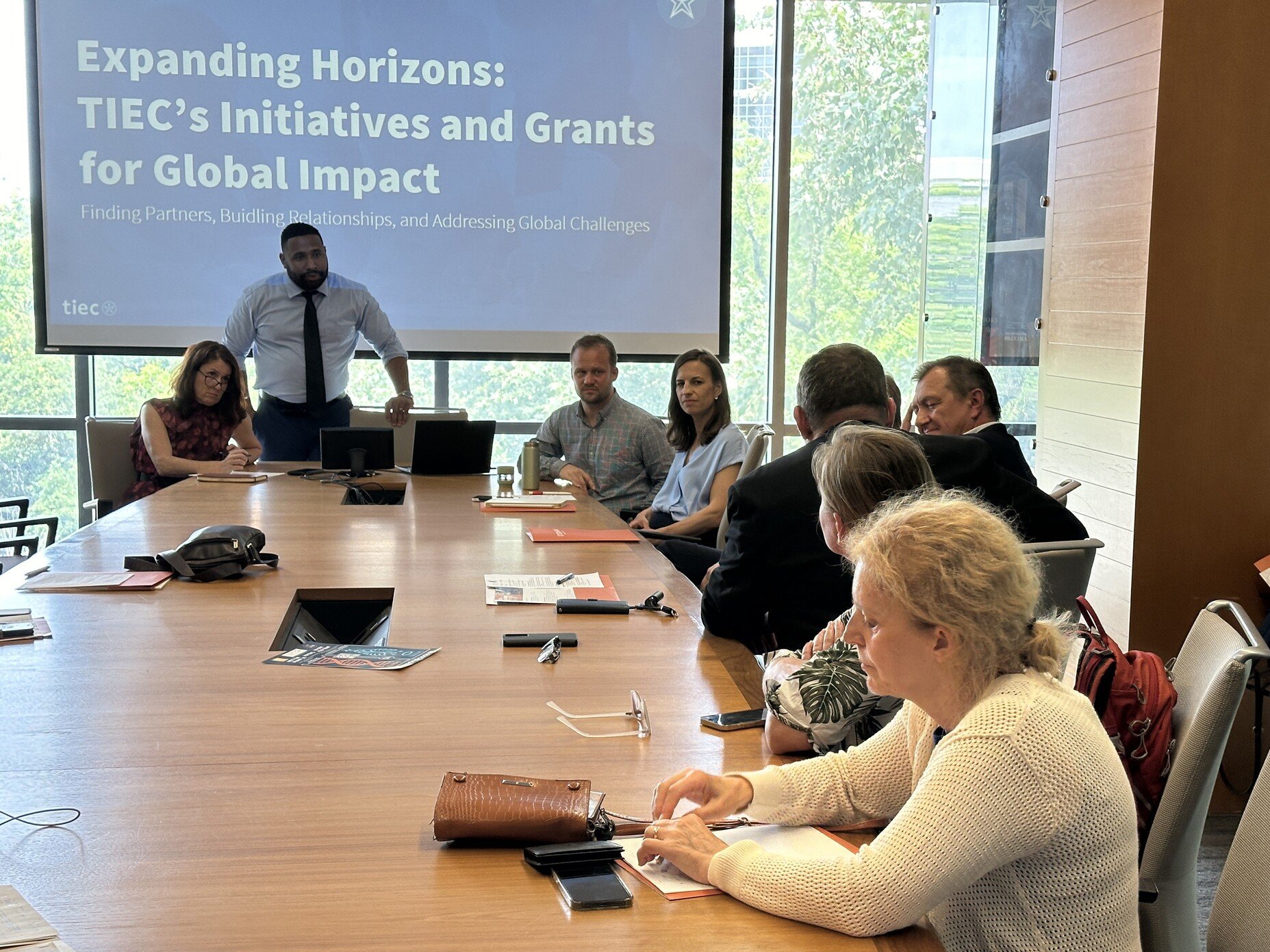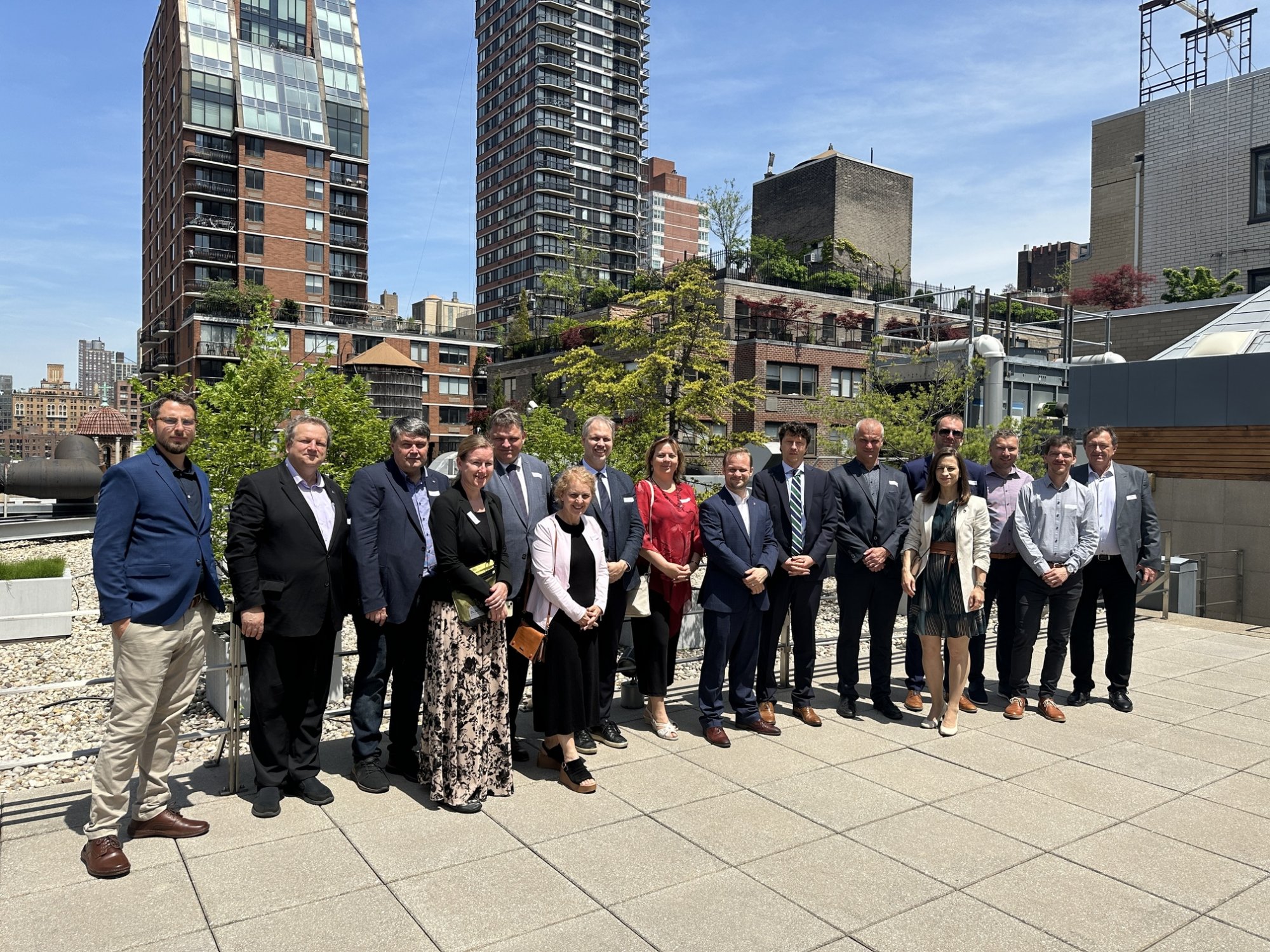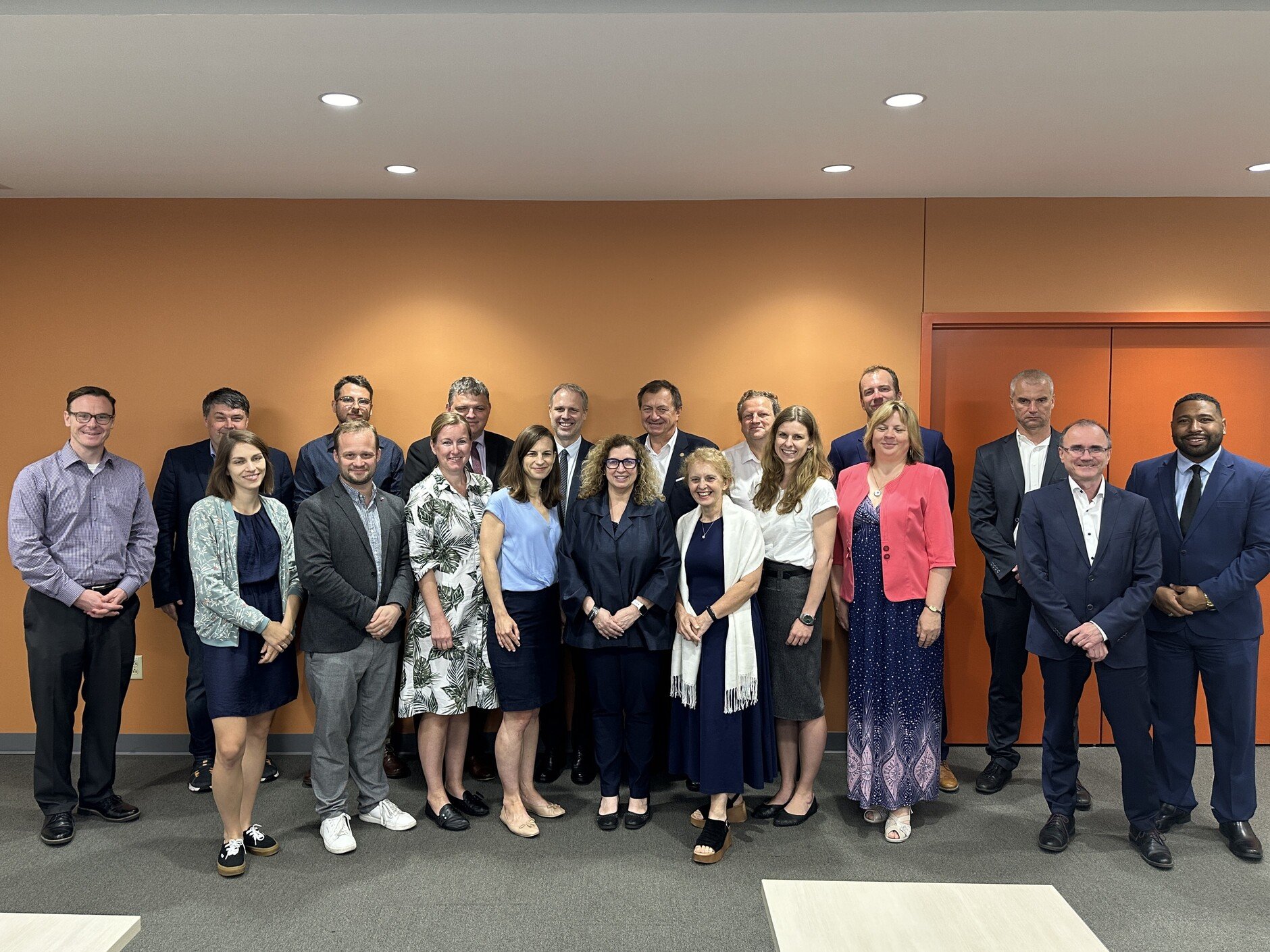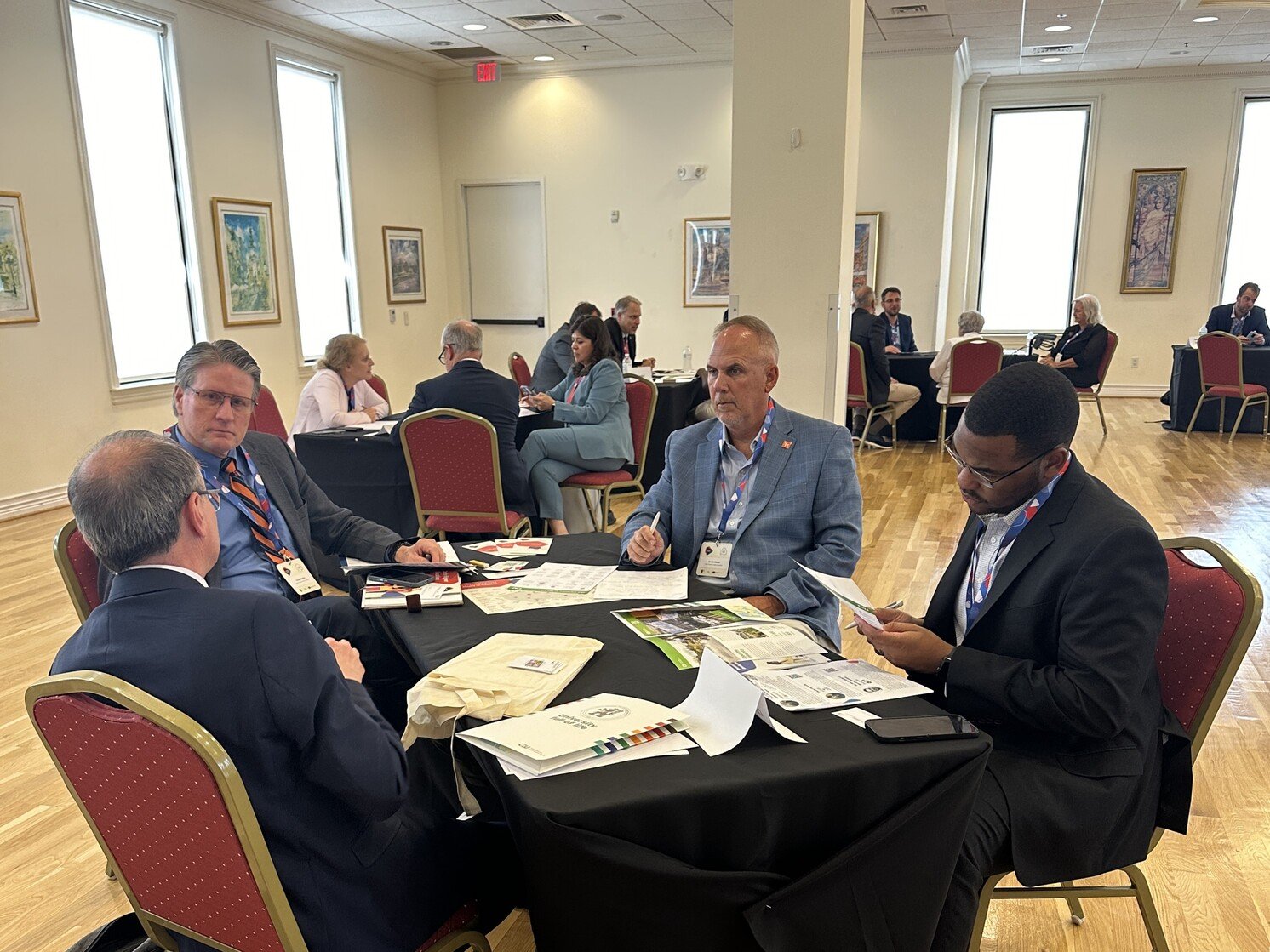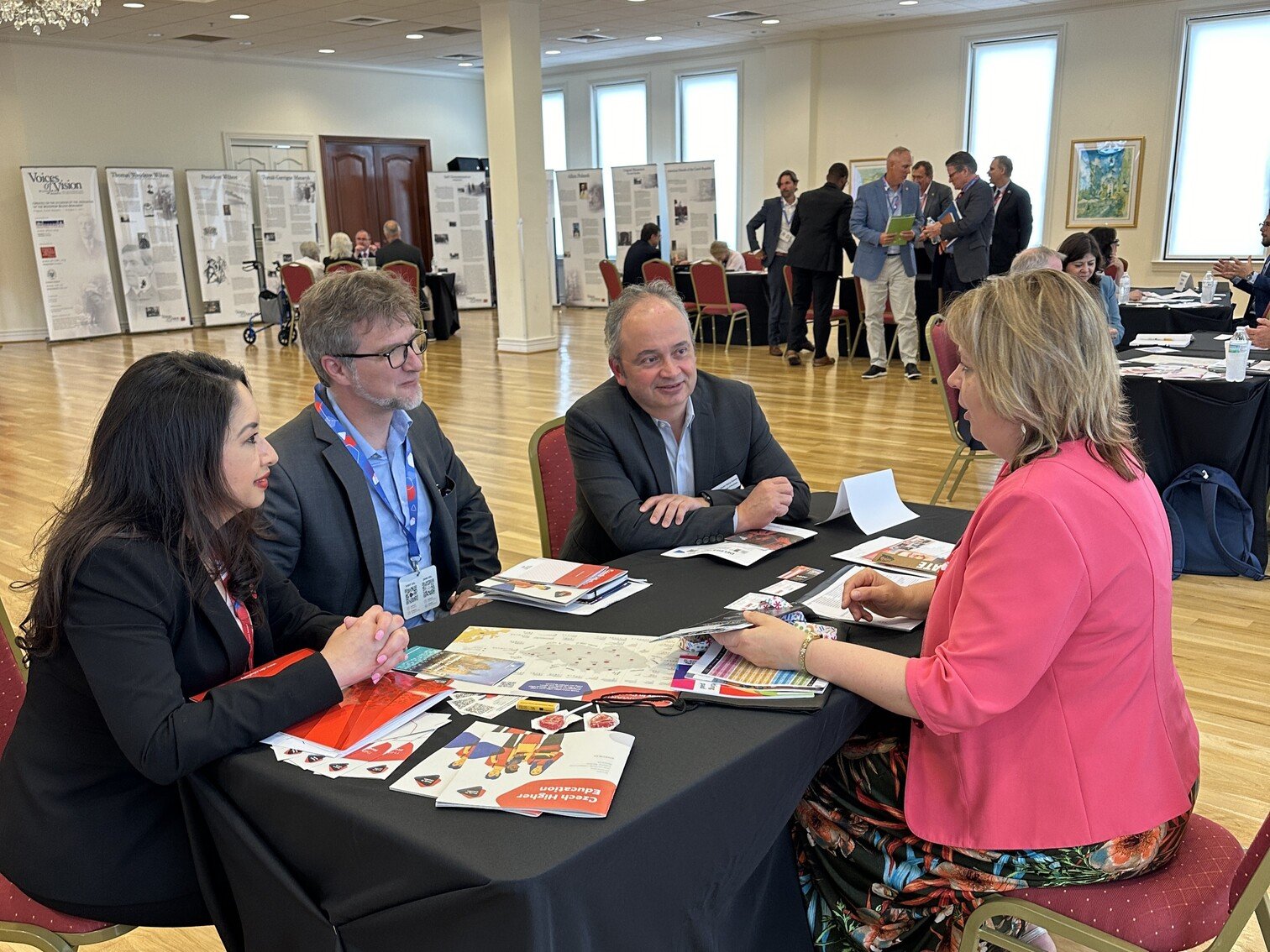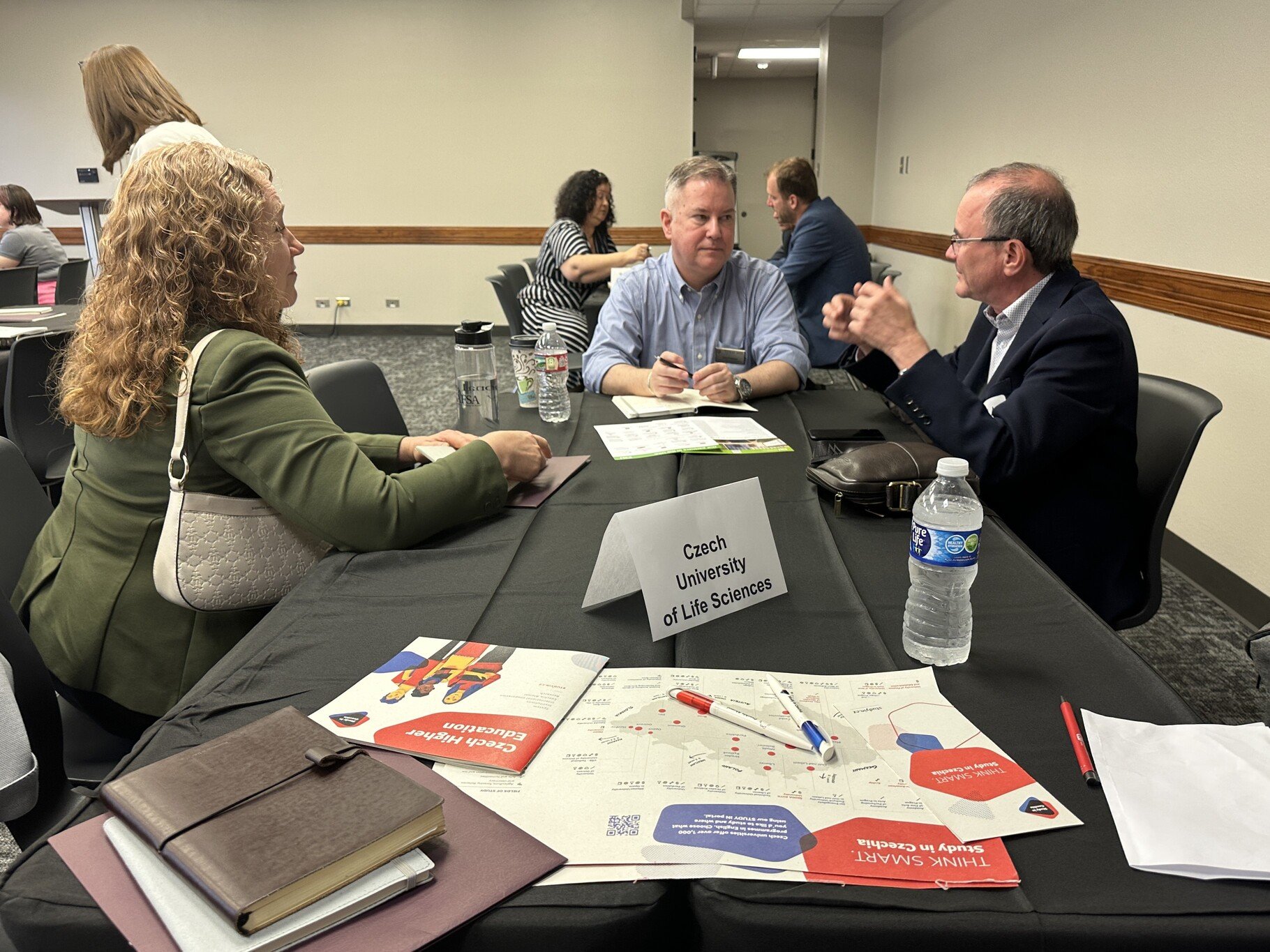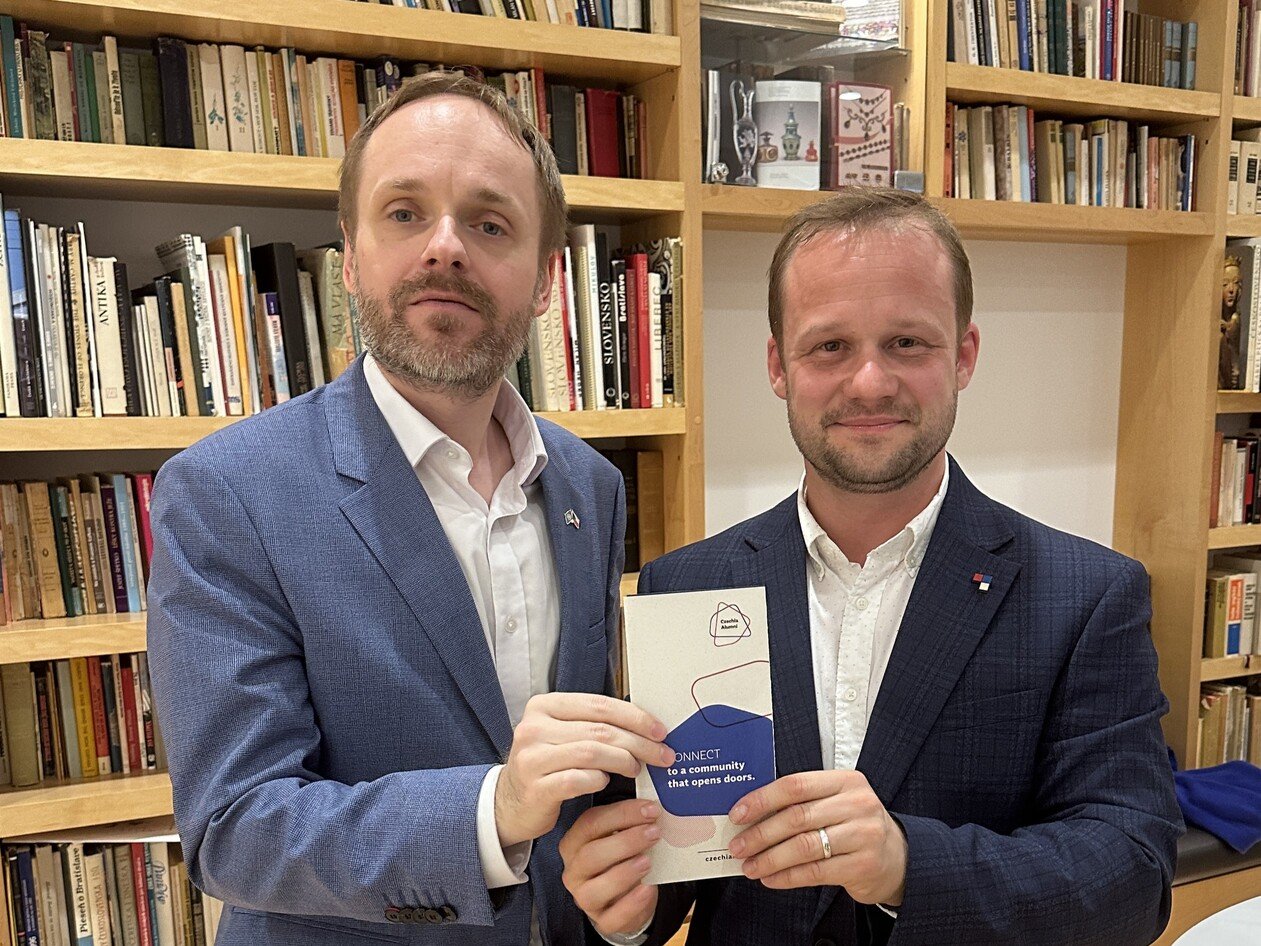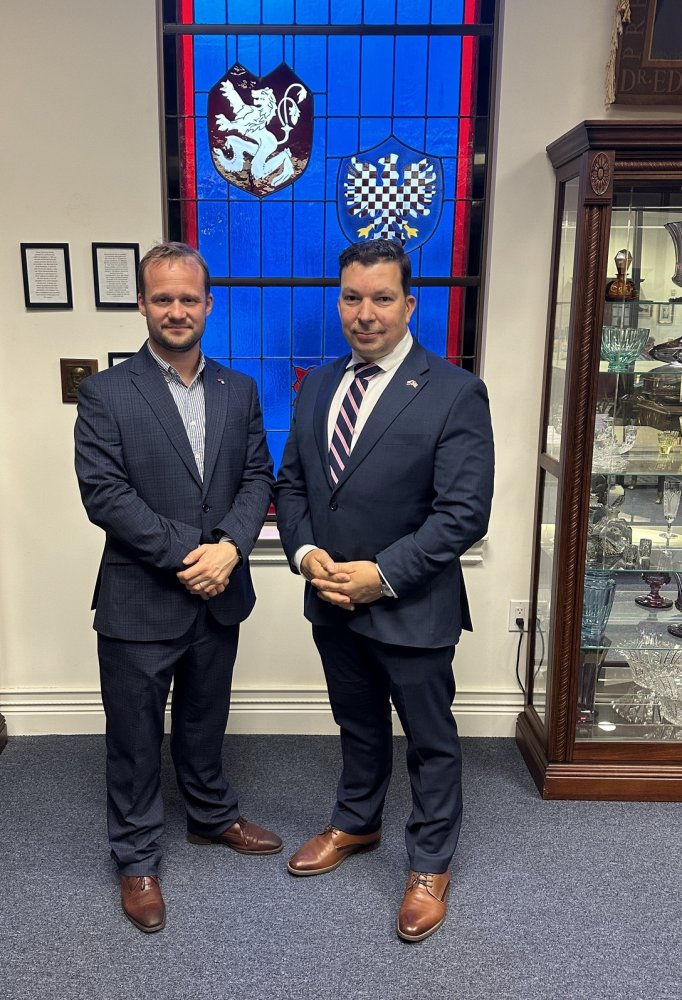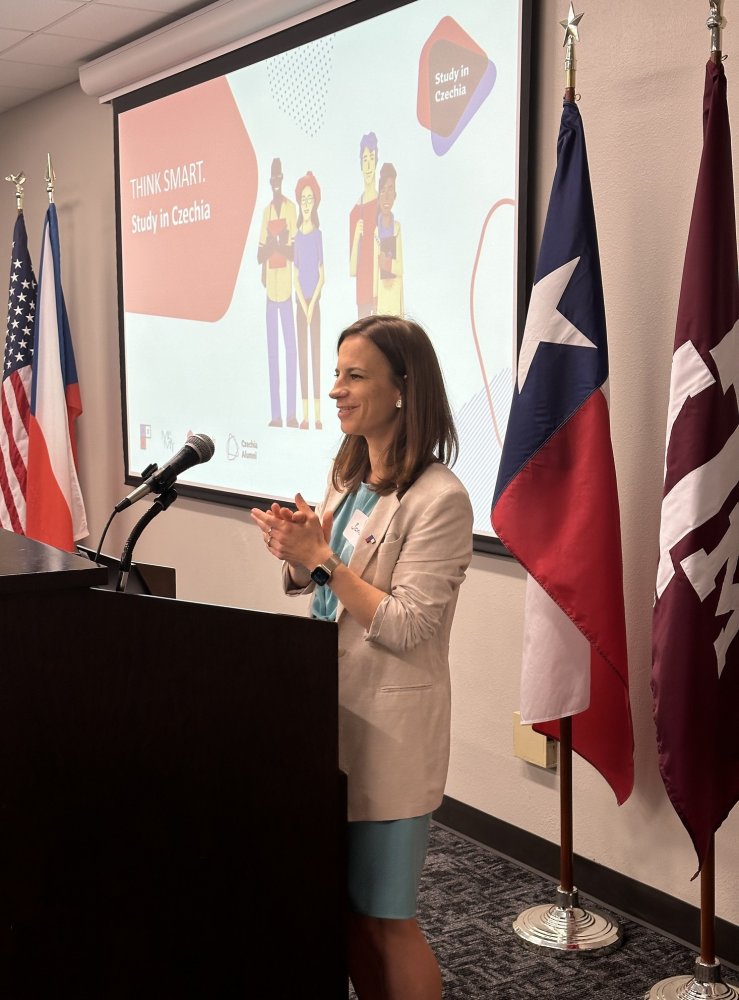American universities seek creative collaboration opportunities with Czechia
The Czech university delegation completed a unique educational and networking journey in the states of New York and Texas.
For universities, forging international partnerships is key to improving the quality of education, promoting innovation, developing collaborative research, and adapting students to the challenges of today's world. This led to organizing a tailor-made journey for Czech universities to facilitate contacts with prestigious American universities. "Today it is more important than ever to maintain mutual relations, especially in the field of education. Without strengthening these ties, our countries cannot remain competitive and prosperous. I believe that this mission will help to intensify cooperation between Czech and American universities and open the door to diverse projects," says Michal Uhl, director of DZS, explaining the reason for the journey organized by the Study in Czechia initiative.
Czech-American cooperation at the academic level is also one of the priorities of the Embassy of the Czech Republic in Washington, D. C. The United States is ranked among the best universities in the world, which is why, according to Ambassador Miloslav Stašek, it is crucial to focus on student and faculty exchanges and cooperation on research projects. "Among the existing successful projects is, for example, the long-term cooperation between CTU and the University of Texas at El Paso focused on smart cities projects. This program is so far the only dual program at the master's level where students complete part of their studies in the U.S. and part in Czechia. We hope that we will be able to establish cooperation with additional universities and move forward with negotiations to establish other similar partnerships," said the Ambassador, adding that a mission such as this can be an important milestone in this regard.
"Czechs are also known as top innovators and producers of start-ups, many of which have achieved unicorn status (worth more than a billion dollars, author's note)," the ambassador adds. Academia is often the gateway to such cooperation, so attracting American scientists to Czech research institutions to participate in the development of cutting-edge technologies is the goal.
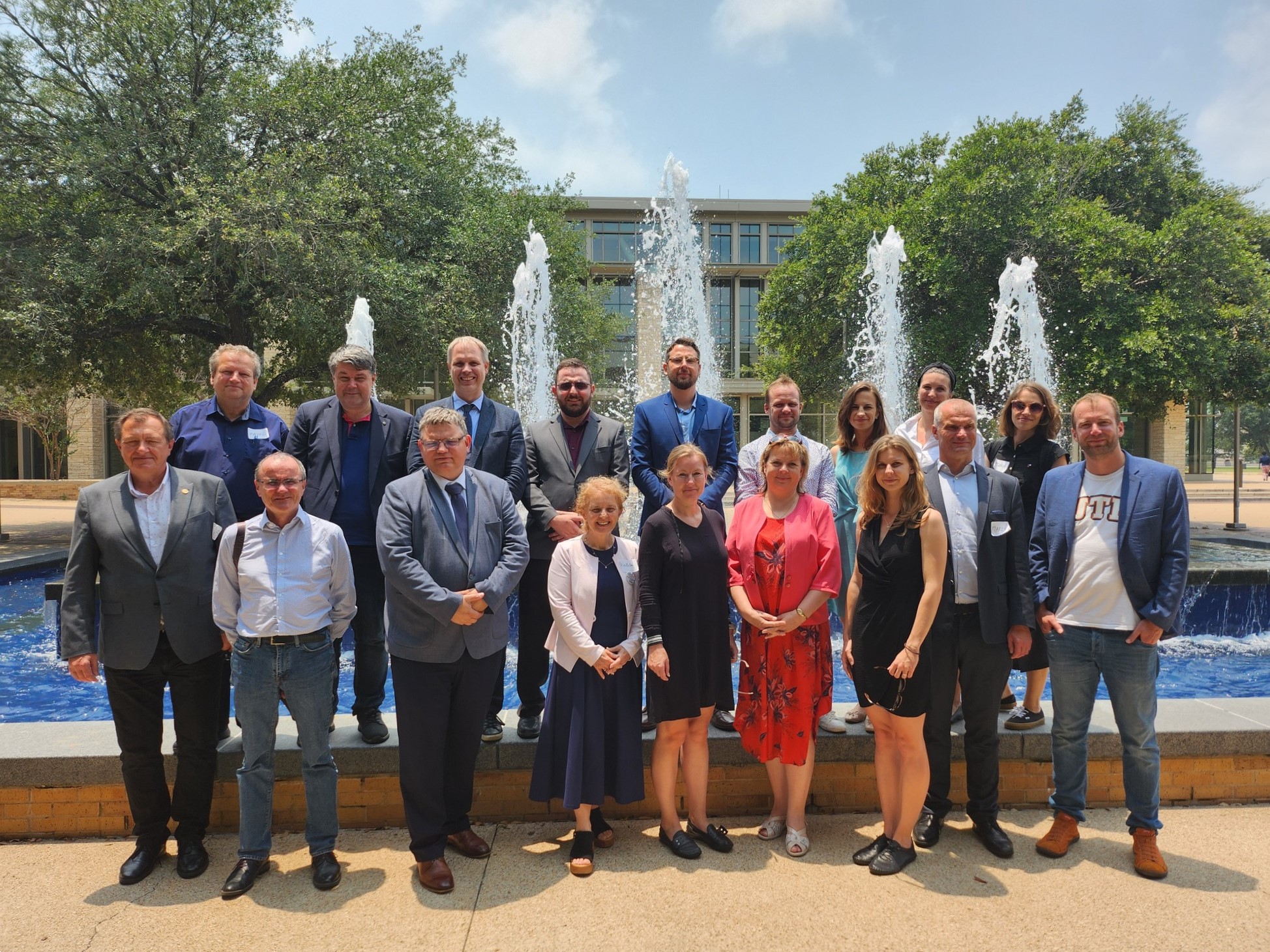
Czechia is not just Prague
The delegation consisted of rectors, vice-rectors and representatives of international departments of ten universities from different Czech regions. The journey thus provided a unique opportunity to establish contacts with universities outside Prague, which have a more complicated path to finding partners. "One of the biggest benefits is that it opens the door to places that would have been difficult for us as a regional university to reach on our own," explains Leona Stašová, Vice Rector for International Relations at the University of Hradec Králové, adding that while they could have approached potential partners, they didn't know who to target or the response would not have been as strong. "When Czechia as a whole becomes the shield for the journey, it gives a completely different impression. It's not just one university, it's the state, university representatives and representatives of international educational institutions. This has enormous power in negotiations with American partners," she adds.
Mendel University, for which exchanges or project cooperation at the doctoral level are particularly attractive, has a similar perspective. Its representatives focused on identifying opportunities in the field of scientific projects, sharing best practices in research, and connecting the acquired contacts with their young scientists. "In Texas, I perceived a completely different way of life in universities and their approach to cooperation with business. I am convinced that any study or practical experience will be something that will significantly advance the lives of our students," says Rector Jan Mareš. He also appreciated the opportunity to have a dialog with the Czech Ambassador to the USA about the upcoming activities and perspectives not only in the field of education and research, but also in the industrial sector.

Diverse approaches in global strategies
The delegation was hosted by leading U.S. educational institutions: University of New York, University of Texas and Texas A&M University. Joint meetings and discussions on the campuses of the universities were complemented by a format of one-on-one meetings, which were attended by dozens of other schools from the New York and Texas area. "I was surprised by the approach of the American universities at the B2B meetings, which showed a real interest in expanding cooperation with Czech universities," says Jiří Skládanka, Vice Rector of Mendel University, comparing this to his previous experience.
It was inspiring to get an insight into the global strategies of universities and the system of partnership cooperation. For example, New York University (NYU), known for its academic excellence and extensive international activities, operates in several world capitals in addition to its main campus in New York (including Prague, where it cooperates with Charles University). Its internationalization strategy is based on creating a global network across these campuses. Eliot Borenstein, Vice Chancellor for Global Affairs, explained that they are attracted to more hands-on exchanges with clearly defined participation in projects and in a cutting-edge laboratory environment.
Sonia Feigenbaum, Senior Vice Provost for Global Engagement and Chief International Officer at Texas Global, which focuses on global education at University of Texas in Austin, introduced a slightly different model of international cooperation. In five years, they have established partnerships with 200 universities and institutions around the world, creating opportunities for research, student exchanges and faculty-level projects. Czech-Texas cooperation is no exception. "We have about 50 academics engaged in research or other creative and publishing activities in Czechia. That's a pretty robust level of collaboration, and I think that number could grow even more," says Feigenbaum.
Although one of Texas Global's goals is to attract international students, by law, up to 90 percent of the university's freshman class must be Texas residents. As a result, they are looking for other forms of collaboration beyond traditional student exchanges. At the same time, says Michael Drew, vice dean for undergraduate education, they want to make sure that they gain intercultural experience not only at the student level, but also at the academic and research level. Developing cooperation with Central European countries is therefore important to them.
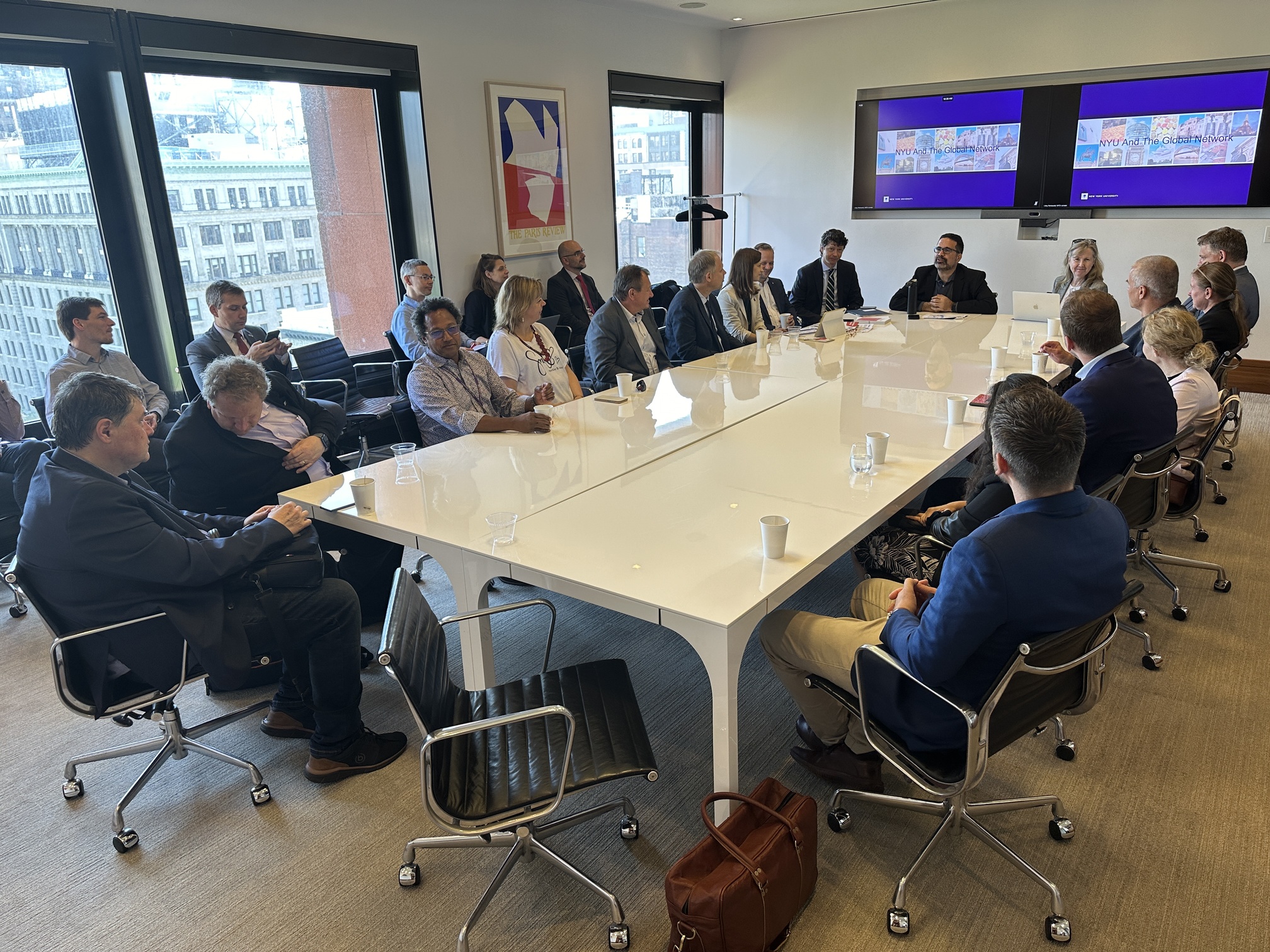
Potential lies in summer schools, experiential learning and linking academic disciplines
Representatives from Texas A&M University (TAMU) also shared the optimistic approach. The fact that American schools do not aim at the number of signed memoranda but at real and mutually beneficial cooperation resonated with the message "Let's be creative in our cooperation". In practice, this can mean a combination of student exchanges at different levels of study, lengths of stay or types of projects, taking into account the real needs of the partner.
"I find the approach of American schools to be open and innovative, which makes it easier to find common ground and interests for cooperation. I see potential in developing creative models of cooperation that go beyond traditional student exchanges. One of these models could be, for example, summer schools or joint online courses," says Libor Čapek, Rector of the University of Pardubice. These summer schools are a suitable form for fields of study where it is not possible to break the semester continuity by going away. He also sees an advantage in the seasonality - due to the extreme heat, Texans are looking for opportunities to travel to countries with a more favorable climate, and an educational stay is a great opportunity.
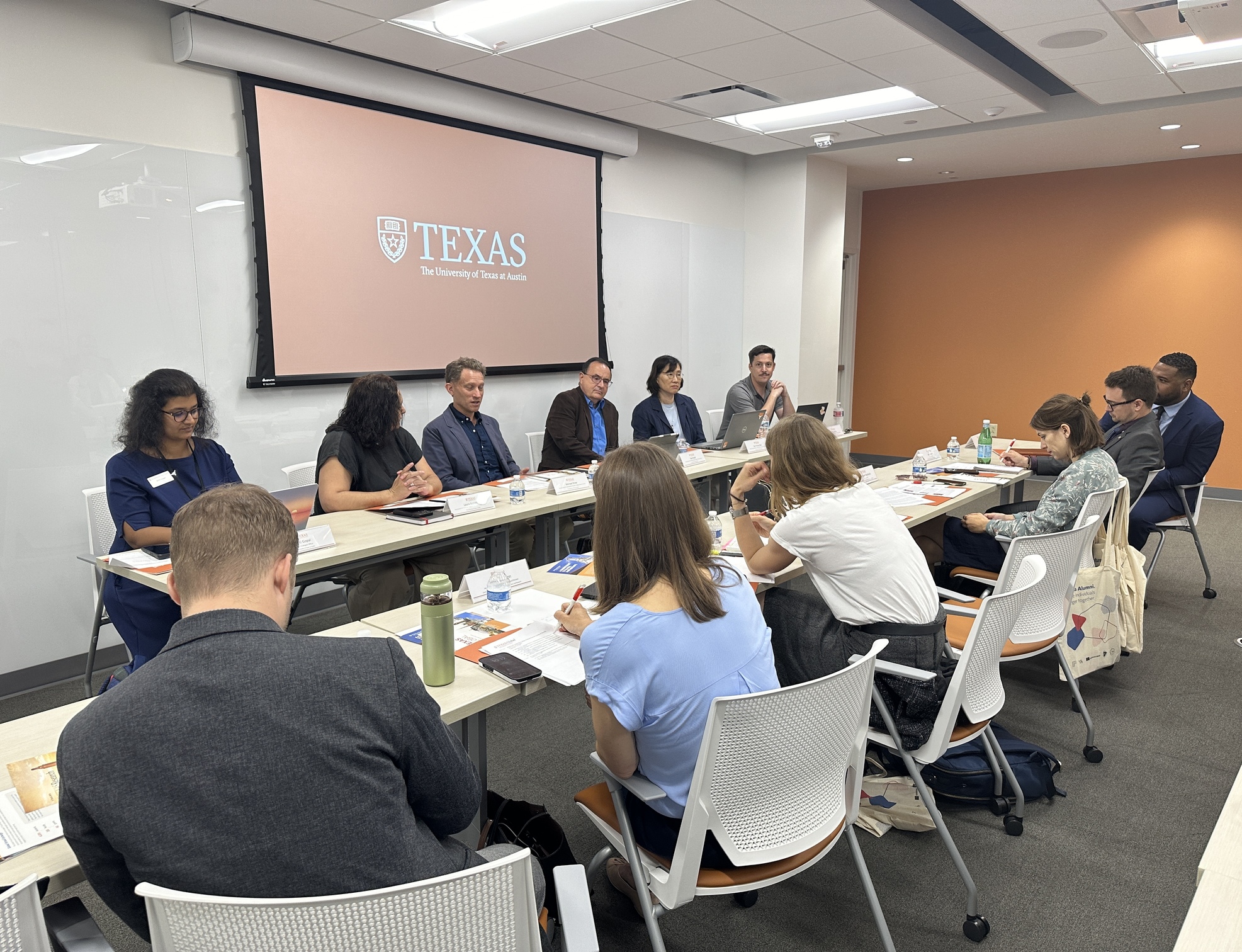
The necessity to understand partners and students alike
During the journey, the Czech delegation established cooperation with institutions supporting the internationalization of education at the American and global level (Institute of International Education and Texas International Education Consortium) and held discussions with authorities of the Czech-American education system. According to Professor Jan Švejnar from Columbia University, when seeking new partnerships, it is crucial to properly define the qualities of the representing universities and not to be afraid to clearly articulate them during negotiations. This includes investing in quality professional capacity - both from academics and those responsible for internationalization. A good way to establish or strengthen cooperation is to provide partners with authentic Czech experience, for example through participation in conferences.
Understanding student needs is important in supporting student exchanges. While the number of American students on short-term mobility in Czechia has increased by 400% over the previous year (with 1,400 students, the U.S. is the fourth most represented country), Czechia receives about 2,500 American students. Czechia was the 13th most popular destination for them in the last academic year. An important prerequisite for increasing the attractiveness of universities and attracting American students is a strong offer of student services. This is linked to an awareness of their needs. "It is important to remember that this is a different profile of students, with different needs and expectations," explains Klára Jelínková from Harvard University, adding that the solution is to show young Americans enough empathy and care.
During the journey, the universities also had the opportunity to meet their alumni, which is important for continuously strengthening ties and maintaining contacts at the university level and within the national Czechia Alumni program. Last but not least, the journey succeeded in strengthening relations between the management of Czech universities. "Although this was not the main goal of our mission, I would like to add a secondary but very important aspect. We are not only strengthening our Czech community, but also connecting and creating common experiences. Whether we come from Hradec Králové, Prague, Brno or wherever, we are all connected by the fact that we represent Czechia and have the same goals," concludes Vice Rector Leona Stašová.
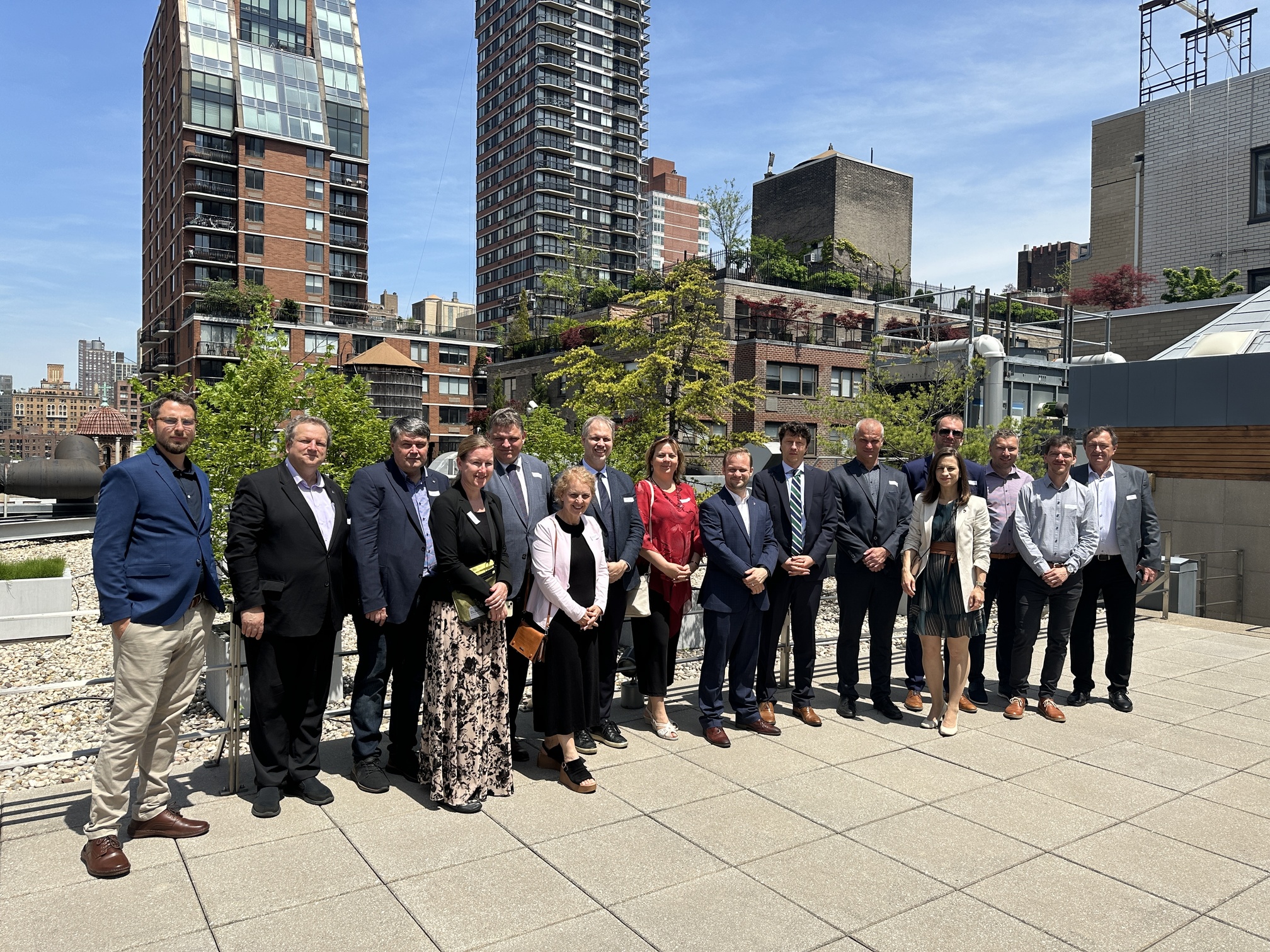
Special thanks to all participating Czech universities:
The journey would not have been possible without our partners, especially the Embassy of the Czech Republic in Washington, D.C., led by Ambassador Miloslav Stasek, the Consulate General of the Czech Republic in New York, and the Institute of International Education (IIE) and the Texas International Education Consortium (TIEC).



